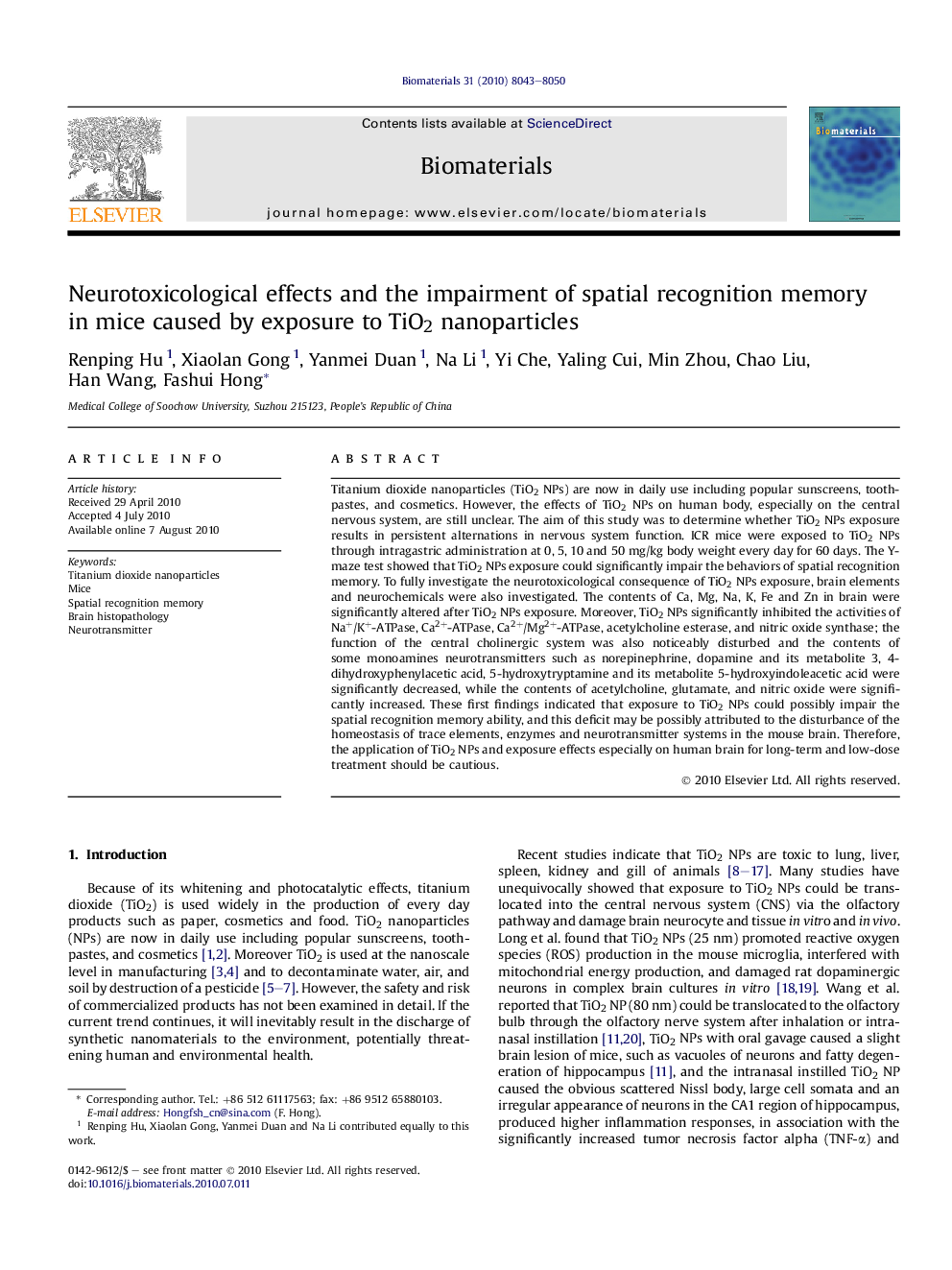| Article ID | Journal | Published Year | Pages | File Type |
|---|---|---|---|---|
| 8060 | Biomaterials | 2010 | 8 Pages |
Titanium dioxide nanoparticles (TiO2 NPs) are now in daily use including popular sunscreens, toothpastes, and cosmetics. However, the effects of TiO2 NPs on human body, especially on the central nervous system, are still unclear. The aim of this study was to determine whether TiO2 NPs exposure results in persistent alternations in nervous system function. ICR mice were exposed to TiO2 NPs through intragastric administration at 0, 5, 10 and 50 mg/kg body weight every day for 60 days. The Y-maze test showed that TiO2 NPs exposure could significantly impair the behaviors of spatial recognition memory. To fully investigate the neurotoxicological consequence of TiO2 NPs exposure, brain elements and neurochemicals were also investigated. The contents of Ca, Mg, Na, K, Fe and Zn in brain were significantly altered after TiO2 NPs exposure. Moreover, TiO2 NPs significantly inhibited the activities of Na+/K+-ATPase, Ca2+-ATPase, Ca2+/Mg2+-ATPase, acetylcholine esterase, and nitric oxide synthase; the function of the central cholinergic system was also noticeably disturbed and the contents of some monoamines neurotransmitters such as norepinephrine, dopamine and its metabolite 3, 4-dihydroxyphenylacetic acid, 5-hydroxytryptamine and its metabolite 5-hydroxyindoleacetic acid were significantly decreased, while the contents of acetylcholine, glutamate, and nitric oxide were significantly increased. These first findings indicated that exposure to TiO2 NPs could possibly impair the spatial recognition memory ability, and this deficit may be possibly attributed to the disturbance of the homeostasis of trace elements, enzymes and neurotransmitter systems in the mouse brain. Therefore, the application of TiO2 NPs and exposure effects especially on human brain for long-term and low-dose treatment should be cautious.
